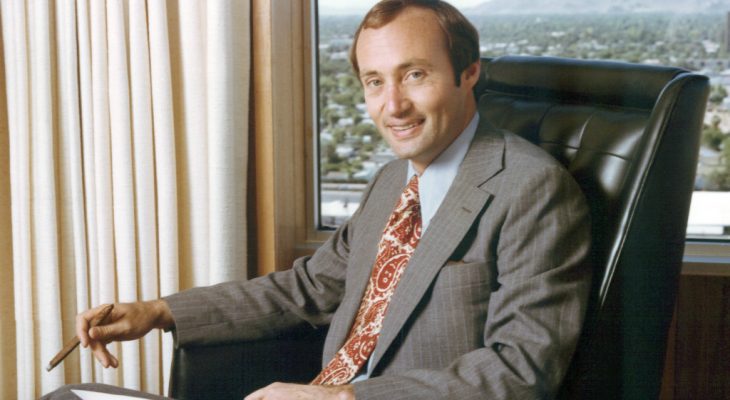In 1962, Tim entered Harvard Business School in Boston, MA and graduated in the top third of the class in 1964 with an MBA. This was an academically challenging experience because of the extensive workload, but provided a good self-testing ground against the “best and the brightest.” He learned to apply his focused intellect to common sense business problems; to work on numerous assignments simultaneously; to write effectively; and to view issues from a general management perspective.
This background, particularly Harvard Business School coupled with military service in the Marine Corps, provided a unique combination of leadership preparation and business skills – and this proved to be a superior foundation and personal investment for a successful future.
In 1964 at age 27, Tim started his business career in New York City, NY on the central finance staff of Trans World Airlines – a major international airline. While he never intended to pursue the field of finance, it provided high visibility and a fast track for advancement. During his four-year tenure, he moved from Financial Analyst; to Manager – Special Financial Projects; to Manager – Profit Analysis; to Director of Budgeting (Transportation Division); to Acting Controller (Transportation Division); to Controller – Eastern Region (Sales and Service Division).
In 1968 at age 31, Tim joined General Host Corporation – a Fortune 500 diversified company – as Vice President of Acquisitions. Shortly thereafter, he was named Vice President of Development and Planning, which expanded his responsibilities to include internal corporate planning. In 1970 he was named Vice President – Treasurer and Chief Financial Officer, which expanded his responsibilities to also include banking relationships, cash management, portfolio investment, and capital financing. During this period he was involved in acquisitions, tender offers, growth strategies, reorganizations, and downsizing efforts – and had the opportunity to meet and observe numerous entrepreneurs. While he had always visualized his career as being a “professional manager” in a large public company, the seeds of reevaluation were planted during this process. In 1972 at age 35, he crossed the line from staff function to operations – against the advice of the Chief Executive Officer who did not want to lose his right hand man. Named as Group Vice President of Operations, he assumed overall responsibility for several diverse divisions of the Corporation including Li’l General Stores, Allied Leather, Van de Kamps, National Northwood, and Milk Specialties. These businesses had significant operating problems and poor financial results, so the Group provided an excellent training ground to test his general management capabilities. After several years of very hard work and extensive travel between New York, Los Angeles, Chicago, Tampa, and Boston – a turnaround was accomplished with greatly improved sales and profitability in all operations.
In 1975 at age 38, General Host asked Tim to take over the leadership of its largest subsidiary as President of Cudahy Company in Phoenix, AZ. This complex full line meat operation – consisting of 13 plants, 15 distribution centers, and over $600 million in sales – was in serious operating and financial trouble. Everyone recognized that this would be a major test of his management skills, judgment, maturity, and development as a leader. He quickly concluded that the Company needed radical surgery and, therefore, pursued a course that combined drastic downsizing with revitalization. This involved closing many facilities; slashing overhead; reorganizing the business structure; clarifying individual unit objectives; focusing on quality initiatives; formalizing the planning process; instituting new accounting and management information systems; establishing aggressive sales/marketing programs; repackaging the product line; and strengthening the management team. After several years of concentrated effort the Company returned to profitability, but there were ominous clouds on the horizon due to aging facilities and equipment, large unfunded liabilities, and powerful union forces. Although still managing Cudahy, Tim was also Executive Vice President of General Host, and in 1980 he felt it was his duty to recommend that the parent company consider divesting its meat business.
While Cudahy was a very demanding experience, it provided excellent management development with running a large complex enterprise; dealing with militant labor unions; testing new marketing and operating concepts; developing a solid management team; and leading under crisis conditions. Further, in 1977 Tim joined the Young Presidents Organization (“YPO”) and established close friendships with many young entrepreneurs. These relationships served to reinforce his growing inclination to start his own business – to be more fully in control of his life and future. It became clear to him that successful entrepreneurs had far more personal satisfaction, security, wealth, independence, and freedom than their counterparts in big public companies. Thus the stage was set, and he was ready and prepared when the opportunity occurred.
